IV Agreed Resolution of the CRPD
IV Meeting of the Regional Conference on Population and Development
This document reinforces the Montevideo Consensus and jointly agrees on the recognition of all types of families.
This document reinforces the Montevideo Consensus and jointly agrees on the recognition of all types of families.
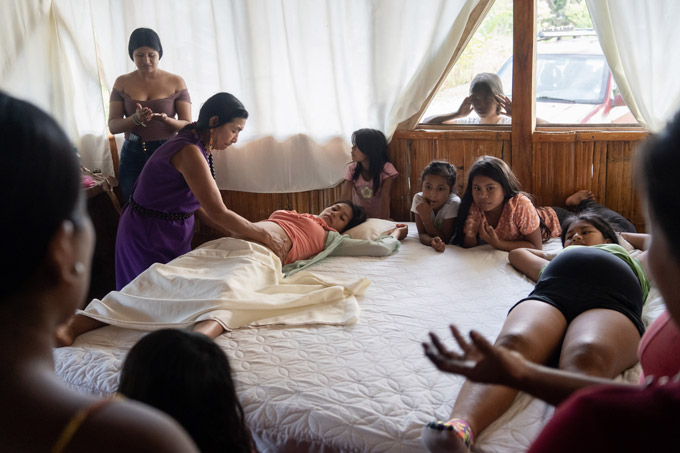
This General Recommendation considers the voices of Indigenous women and girls as protagonists and leaders within and outside their communities. It identifies and addresses different forms of intersectional discrimination faced by Indigenous women and girls, and their key role as leaders, bearers of knowledge and conveyors of culture within their villages, communities, families and society as a whole. (Paragraph 2).
The chapter on LGTBI rights focuses on the condemnation of violence motivated by sexual orientation, gender identity, gender expression and sexual characteristics, urges States to take measures and establishes lines of action for OAS bodies.
The XV RWC held its meeting under the theme "Towards caring societies", and adopted the Buenos Aires Commitment, a robust and comprehensive document that represents a roadmap for the States. Under this framework, commitments and agreements were made regarding SRHR, the rights of persons with disabilities, among others.
On November 2, 2021, the Inter-American Court of Human Rights issued a judgment declaring the Republic of El Salvador internationally responsible for the violation of the rights: (i) to personal liberty and to the presumption of innocence to the detriment of Manuela; (ii) to the defense, to be tried by an impartial tribunal, to the presumption of innocence, the duty to state reasons, the obligation not to apply legislation in a discriminatory manner, equality before the law, the right not to be subjected to cruel, inhuman or degrading punishment and the obligation to ensure that the purpose of the custodial sentence is the reform and social readaptation of convicted persons, to the detriment of Manuela; iii) to life, personal integrity, privacy, equality before the law, health and equality before the law, to the detriment of Manuela, and iv) to personal integrity to the detriment of Manuela's mother, father, eldest son and youngest son, in relation to the obligations to respect and guarantee the rights and the duty to adopt domestic law provisions, to the detriment of Manuela.
The chapter on LGTBI rights focuses on the condemnation of violence motivated by sexual orientation, gender identity, gender expression and sexual characteristics, urges States to take measures and establishes lines of action for OAS bodies.
In this agreement, the States committed to promote the full exercise of sexual and reproductive rights, including explicitly mentioning safe and quality abortion services in cases where abortion is legal or decriminalized in national legislation.
It is a landmark ruling because it establishes for the first time standards to prevent girls and adolescents from suffering sexual violence in educational settings throughout Latin America and the Caribbean. The Court points out that the right to sexual and reproductive education is an integral part of the right to education. It must be comprehensive, non-discriminatory, evidence-based, scientifically rigorous and age-appropriate. It must be suitable to enable girls and boys to have an adequate understanding of the implications of sexual and affective relationships, particularly in relation to consent to such relationships and the exercise of their sexual and reproductive rights.
The chapter on LGTBI rights focuses on the condemnation of violence motivated by sexual orientation, gender identity, gender expression and sexual characteristics, it also urges States to take measures and establishes lines of action for OAS bodies.
Article 53 of this law determines that the institutions that provide health services must implement actions to guarantee sexual and reproductive health care for persons with disabilities. It also establishes that the autonomy of women with disabilities must be respected in family planning processes and in cases of sterilizations, based on their free and informed consent.
In its report on the merits, the IACHR determined that the State did not prove that it had acted diligently or adopted reasonable measures to safeguard the rights of Mrs. Britez Arce, despite the special duties it had towards her as a pregnant woman.
In this report the IACHR states that although there is no legal definition of obstetric violence, the IACHR has considered that "obstetric violence encompasses all situations of disrespectful, abusive, negligent treatment, or denial of treatment, during pregnancy and the previous stage, and during childbirth or postpartum, in public or private health centers". The IACHR specifies that obstetric violence is defined as actions or omissions on the part of doctors and support personnel in public or private health services during pregnancy, childbirth and postpartum; characterized by dehumanizing or discriminatory treatment that causes physical, psychological or moral harm to the woman.
The chapter on LGTBI rights focuses on the condemnation of violence motivated by sexual orientation, gender identity, gender expression and sexual characteristics; and urges States to take measures and establishes lines of action for OAS bodies.
The Constitution of the Republic recognizes and protects sexual and reproductive rights.
The case refers to a series of violations in the framework of the criminal proceeding derived from a miscarriage that culminated in the conviction for the crime of aggravated homicide. In its analysis of the merits, the Commission determined that the State violated the right to personal liberty for the illegal detention of the victim, the right to privacy and the right to health; as well as the international responsibility of the State for the violation of the duty to state reasons, presumption of innocence and the principle of equality and non-discrimination taking into account the application of a series of stereotypes throughout the criminal proceedings. In addition, the Commission concludes that the violation of professional secrecy constituted an arbitrary restriction of Manuela's right to privacy.
In this Resolution, the OAS condemns discrimination and acts of violence based on sexual orientation and gender identity or expression. In addition, one of its objectives is to expand, improve and ensure access to health services for persons with disabilities, including sexual and reproductive health services,
As stated in Paragraph 1, the purpose of this GC is to clarify the obligations of States parties in relation to non-discrimination and equality, as enshrined in Article 5 of the Convention. Specific reference is made in this GC to the guarantee of the right to sexual and reproductive health.
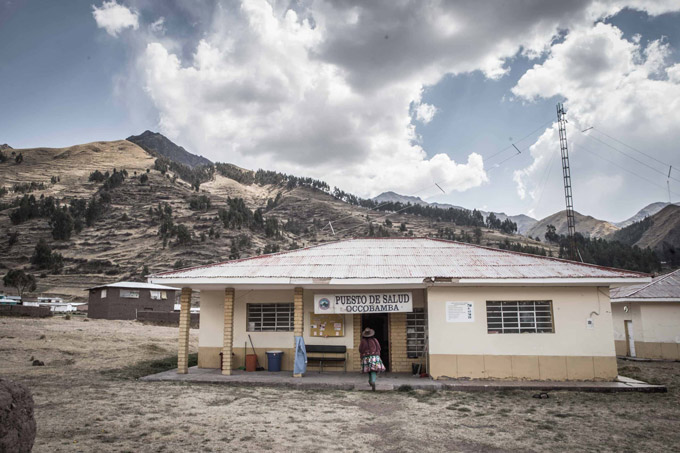
This thematic report indicates that the Inter-American Commission has been informed that, in several Latin American countries, indigenous women seeking health services were forced to undergo sterilization or to use contraceptives. In addition, the IACHR considers that States have certain fundamental obligations that require the immediate adoption of priority measures in the area of maternal health. One of these is to prioritize efforts and resources to ensure access to maternal health services for women who tend to be at higher risk, such as indigenous women.
In this report, the IACHR highlights the widespread conditions of discrimination and social exclusion faced by gay, lesbian, bisexual, transgender and intersex (LGBTI) children and adolescents. In turn, the Commission notes that States should create mechanisms to collect information and monitor social perceptions about children and adolescents and their rights. In particular, it is important to understand the resistance in society towards the exercise of certain rights such as sexual and reproductive rights.
This GC details the specific legal obligations incumbent upon States parties to respect, protect and fulfill the right of everyone to sexual and reproductive health. Among them, it calls for the reformulation of laws that impede the realization of the right to sexual and reproductive health, such as laws criminalizing abortion, non-disclosure of HIV status, exposure to HIV and its transmission, sexual relations between consenting adults, and transgender identity or expression.
This case deals with the responsibility of the State for the damages suffered by Mrs. I.V. as a result of a fallopian tube ligation surgery she underwent without her informed consent. The Court declared violated, among others, the rights to personal integrity, dignity, private and family life, and access to information. It also emphasized that non-consensual sterilizations disproportionately affect women because they are socially assigned the reproductive and family planning function.
In this GC, the Committee reports on the obstacles encountered by women and girls with disabilities in most areas of life, which generate situations in which there are multiple and intersectional forms of discrimination against women and girls with disabilities, particularly in relation to the ability to exercise control over their own lives in various contexts, for example, with respect to health care, including sexual and reproductive health services, and where and with whom they wish to live, and makes recommendations to States Parties in this regard.
This UN General Assembly Resolution adopts the outcome document of the United Nations summit for the adoption of the post-2015 development agenda: Transforming our world: the 2030 Agenda for Sustainable Development. It is a comprehensive action plan structured around 15 Goals, disaggregated with their respective indicators.
In this joint GR, the Committees establish standards regarding the duty to ensure access to comprehensive and confidential health services.
Through this decision, the Common Market Council approves the ""MERCOSUR Gender Equality Policy Guidelines"", which urge the States to develop policies that ensure the full exercise of sexual and reproductive rights of women and men; guarantee the right to make free, informed, voluntary and responsible decisions on sexuality and reproduction, without coercion, violence or discrimination based on sexual orientation, gender identity, ethnicity, race, religious beliefs, disability or place of residence.
In this GC, the Committee deepens the interpretation of the scope of the right to health, "from the perspective of the rights of the child, in the sense that all children are entitled to opportunities for survival, growth and development in a context of physical, emotional and social well-being to the maximum extent of their potential".

Article 65 of this law determines the creation of the Department of Prevention and Health, whose purpose is to guarantee that the general policy of health and prevention services ensures that persons with disabilities have effective access to adequate care for their physical and mental health, including sexual and reproductive health, as well as early detection and intervention, when appropriate, as well as services aimed at preventing and reducing the development of new disabilities.
The purpose of this law is to guarantee and ensure the effective exercise of the rights of persons with disabilities, through the adoption of measures of inclusion, affirmative action and reasonable adjustments and eliminating all forms of discrimination due to disability.
The case concerns the international responsibility of the State for discriminatory treatment and arbitrary interference in the private and family life of Karen Atala Riffo, due to her sexual orientation. It established important standards for the principle of equality and the obligation not to discriminate on the basis of gender.
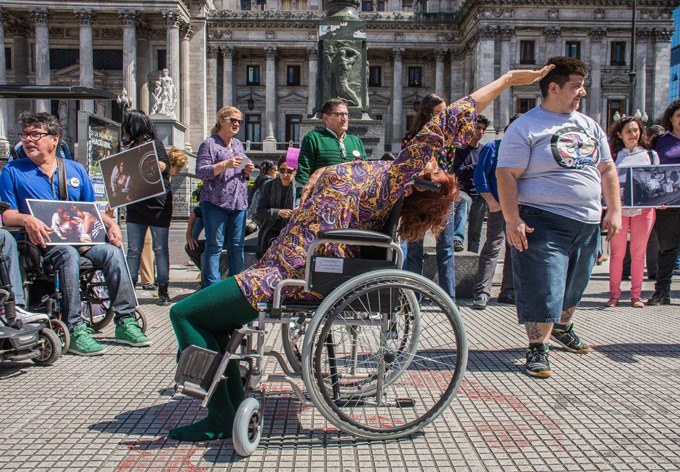
This law establishes that the State guarantees that persons with disabilities have access to comprehensive, quality health services implemented with quality infrastructure, equipment and trained human resources, including rehabilitation and sexual and reproductive health.
The case refers to the international responsibility of the State for the enforced disappearance of María Claudia García Iruretagoyena de Gelman, as well as the suppression and substitution of identity of María Macarena Gelman García. In this decision, the Court determined that the facts of the case reveal a particular conception of a woman's body that undermines her maternity, which is an essential part of the free development of women's personality.
In this report, the IACHR recalls that the right to access to information is especially relevant in the area of health and specifically in the area of sexuality and reproduction, as it contributes to the ability of individuals to make free and informed decisions regarding intimate aspects of their personality. Under the Inter-American system, access to sexual and reproductive information involves a series of rights such as the right to freedom of expression, personal integrity, protection of the family, privacy and freedom from violence and discrimination.
In this report, Special Rapporteur Anand Grover on the right of everyone to the enjoyment of the highest attainable standard of physical and mental health examines the interaction between criminal laws and other legal restrictions on sexual and reproductive health and the right to health. The right to sexual and reproductive health is a fundamental part of the right to health. States must therefore ensure that this aspect of the right to health is fully realized. The Special Rapporteur examines the impact of criminal and other legal restrictions on abortion; conduct during pregnancy; contraception and family planning; and access to sexual and reproductive health education and information. Some of the criminal and other legal restrictions in each of these areas, often discriminatory, hinder access to quality goods, services and information and thus violate the right to health. They also violate human dignity by restricting the freedoms arising from the right to health, particularly with regard to decision-making and physical integrity. Moreover, the application of these laws to achieve certain public health outcomes is often ineffective and disproportionate.
Article 4 of the Mexican Constitution establishes that everyone has the right to decide freely, responsibly and in an informed manner on the number and spacing of their children.
It establishes that the Ministry of Health will provide information, education, hygiene, preventive and healing sexual and reproductive health services to men and women with disabilities throughout their life cycle; the reduction of maternal mortality.
It specifies that the State establishes as fundamental rights in the area of comprehensive health, sexual health and reproductive health: the right to receive qualified information on matters related to these rights; the right to receive risk prevention services in this matter; and the right to comprehensive care. It determines that all persons, without any discrimination whatsoever and at all stages of their lives, must be guaranteed access to educational information, free and good quality services for comprehensive health care in the design, implementation and evaluation of health policies and plans. In addition, quality health services during fertilization, implantation, pregnancy, childbirth and puerperium should also be guaranteed to all women, without discrimination of any kind.
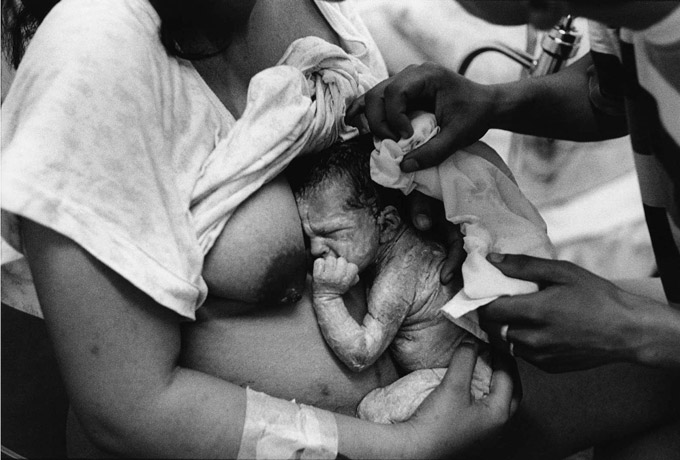
The Court emphasizes that extreme poverty and the lack of adequate medical care for pregnant or post-pregnant women are causes of high maternal mortality and morbidity. Therefore, the States must provide adequate health policies that allow them to offer assistance with adequately trained personnel for the care of births, policies for the prevention of maternal mortality through adequate prenatal and post-partum controls, and legal and administrative instruments in health policies that allow adequate documentation of cases of maternal mortality.
In this report, the IACHR highlights that maternal mortality continues to be a serious human rights problem that dramatically affects women around the world and in the region, and that has repercussions for their families and communities. Specifically, women who have been historically marginalized on the basis of race, ethnicity, economic status and age have the least access to needed maternal health services. This report addresses how States' obligations to respect and guarantee human rights without discrimination, particularly the right to personal integrity, can contribute to overcoming inequalities in access to maternal health services - understood as women's health during pregnancy, childbirth and the postpartum period - and in ensuring that all women, particularly those who have been historically marginalized, enjoy effective access to these services.
The purpose of this Law is to create a legal framework to implement the necessary mechanisms to improve the health and quality of life of women and newborns, and to promote human development by ensuring women's maternity, through universal, timely and free access to timely, accurate and complete information and quality services before and during pregnancy, childbirth or postpartum, to prevent and progressively eradicate maternal and neonatal mortality. Among its purposes is to guarantee universal, timely and quality access to maternal-neonatal services, including family planning, differentiated care for adolescents, respecting the cultural relevance and geographic location of Guatemalan women, among others.
Regulates the creation of Sexual and Reproductive Health Services throughout the country and establishes the benefits to be provided by such services, which must include universal access to safe and reliable contraceptive methods.
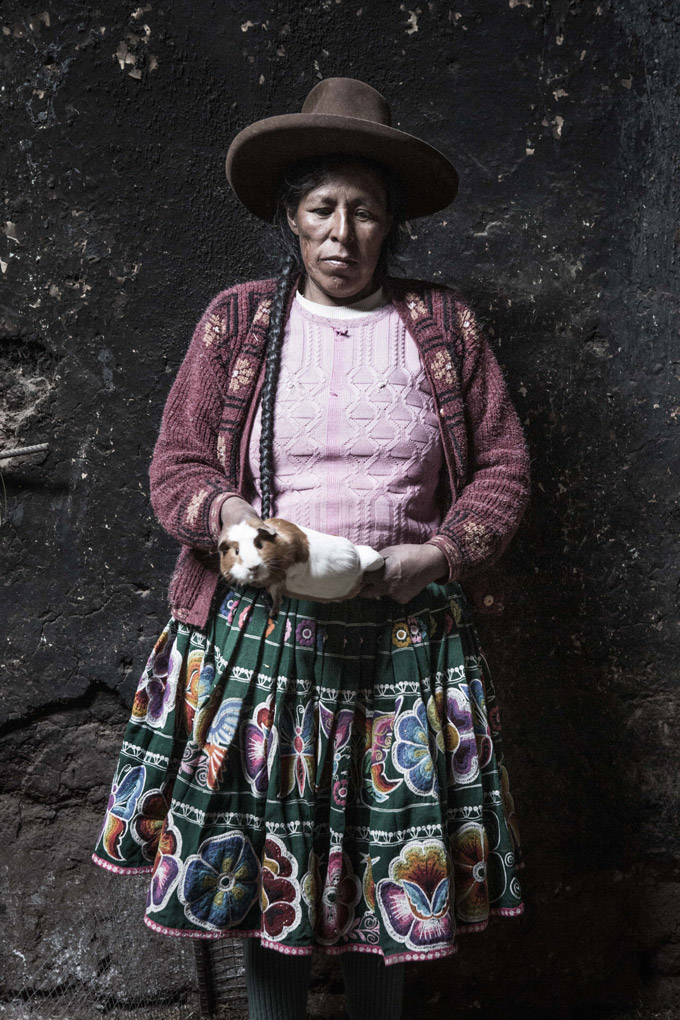
In this first hemispheric report, the experts mention that "in legislations where sexual and reproductive rights are neither protected nor recognized, serious violations of these rights can occur, translated into ignorance of their sexual and reproductive rights, forced sterilization, high rates of maternal morbidity and mortality, among others. Those most at risk and at risk are the most vulnerable women: impoverished women, young women, and women in rural areas for whom access to health care is a serious problem and who must resort to unhealthy and dangerous practices".
It determines the Ministry of Health's obligation to establish plans and programs that enable women and men, without any distinction and at all stages of their lives, to have access to comprehensive health care services, information, education, hygiene and low-cost and good quality services; preventive and healing, sexual and reproductive health services and the reduction of maternal mortality.
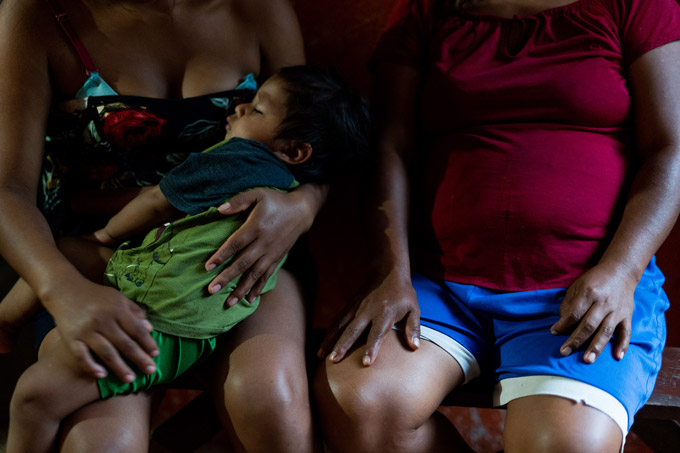
The Constitutional text recognizes the right to sexual and reproductive health.
In this document, the States recognize that unsafe abortion, teenage pregnancies and the insufficient provision of family planning services are an example of the limitations of the States in guaranteeing Sexual and reproductive Rights. The States commit to ensure that sexual and reproductive rights and universal access to comprehensive health care are considered an indispensable condition for guaranteeing women's participation in political life and paid work and, therefore, in decision-making positions for all women, with priority given to young women, the poorest women, indigenous women, women of African descent, rural women and women with disabilities.
It establishes as a guideline for the Executive Power, regional governments and local governments, the duty to guarantee the right to health in terms of availability, quality, acceptability and accessibility to services, with special emphasis on the enforcement of sexual and reproductive rights, the prevention of teenage pregnancy, and the right to safe motherhood.
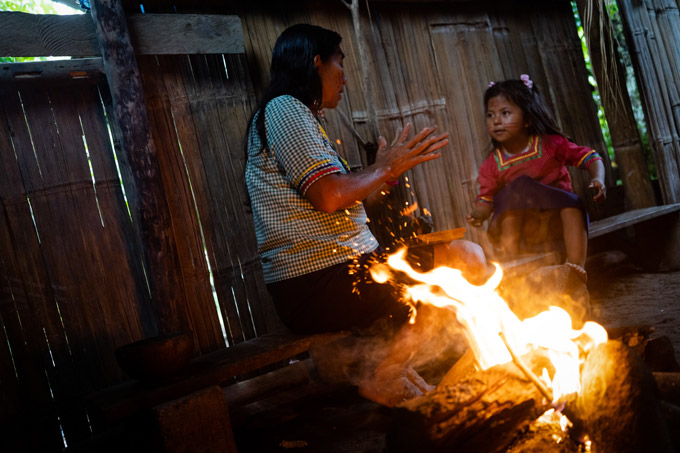
This law establishes that all children and adolescents have the right to be informed and educated, according to their development, on sexual and reproductive health for responsible, healthy, voluntary and safe sexual activity and parenthood. The State, with the participation of society, must guarantee sexual and reproductive health care services and programs for all children and adolescents. These services and programs must be affordable, confidential, safeguard the right to privacy of children and adolescents and respect their free consent, based on timely and accurate information. Adolescents over fourteen years of age have the right to request and receive these services on their own.
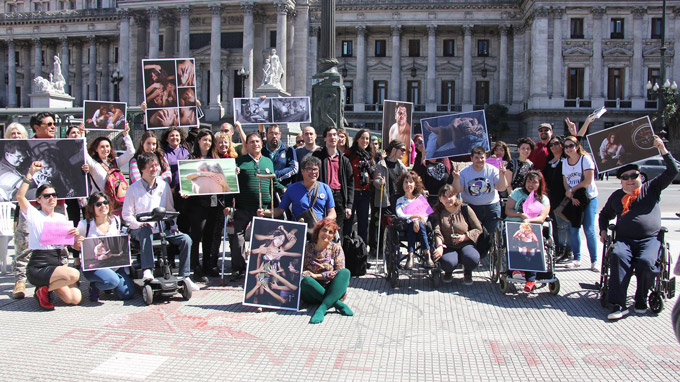
The Convention is the first legally binding international instrument that obliges states to promote and protect the rights of persons with disabilities in particular. The Convention covers many areas where barriers may arise. It also seeks to reduce stigmatization and discrimination, which are often among the reasons why people with disabilities are excluded from education, employment, health and other services.
In this agreement, the States commit to review and implement legislation that guarantees the responsible exercise of sexual and reproductive rights and non-discriminatory access to health services, including sexual and reproductive health.
The Committee on the Rights of the Child elaborates and deepens the content of the Convention in relation to adolescent health and development.
In this Friendly Settlement Agreement, the Peruvian State acknowledges its international responsibility for violation of Articles 1.1, 4, 5 and 24 of the American Convention on Human Rights, as well as Article 7 of the Inter-American Convention on the Prevention, Punishment and Eradication of Violence against Women, to the detriment of the victim María Mamérita Mestanza Chávez, who underwent a surgical sterilization procedure, which ultimately resulted in her death. In addition to committing to reparation measures, the Peruvian State undertakes to carry out legislative and public policy modifications on the issues of Reproductive Health and Family Planning, eliminating any discriminatory approach and respecting the autonomy of women.
With this GC, the Committee unfolds the scope of the right to health recognized in Art. 12 of the Covenant. The Committee recognizes the right to reproductive health and outlines its definition and scope, including specific provisions for adolescents and youth.
This agreement mentions sexual and reproductive rights and proposes measures for their fulfillment.
In this GC, the Committee urges States to submit reports on the right to life that provide data on birth rates and the number of cases of deaths of women in connection with pregnancy or childbirth. They should also provide information on measures taken to help prevent unwanted pregnancies and to ensure that women do not have to resort to life-threatening clandestine abortions.
This Declaration is what enabled the adoption and implementation of the Millennium Development Goals (MDGs) agenda, which deployed programmatic actions around 8 Goals, one of them, Goal 5: Improve maternal health, for which it is proposed to reduce maternal mortality by three quarters between 1990 and 2015 and achieve universal access to reproductive health.

The Committee on the Elimination of Discrimination against Women affirms that access to health care, including reproductive health care, is a basic right under the Convention on the Elimination of All Forms of Discrimination against Women.
Article 76 of the Venezuelan Constitution establishes the right of couples to decide freely and responsibly the number of children they wish to conceive and to be provided with the information and means to ensure the exercise of this right. The State shall guarantee assistance and integral protection to maternity, in general from the moment of conception, during pregnancy, childbirth and puerperium, and shall ensure comprehensive family planning services.
Sexual and reproductive rights are mentioned
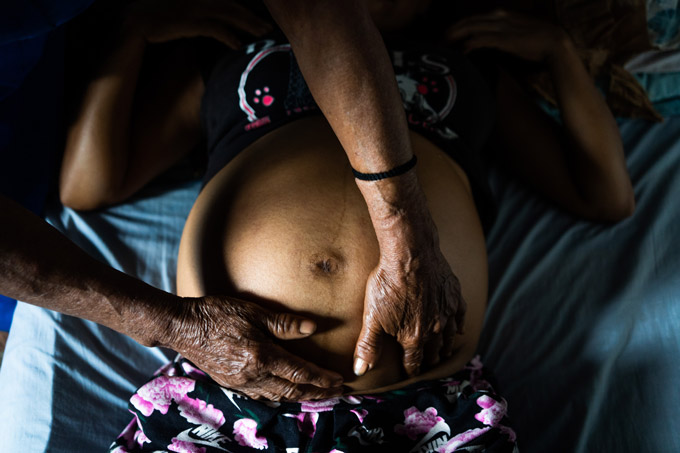
The Program of Action is a milestone, particularly because it establishes the unbreakable relationship between population and development within the framework of human rights. It also presents the first globally agreed definition of reproductive health and rights.
The agreement signed by the States of the Region mentions reproductive rights and establishes programmatic and strategic measures to guarantee them.
The Timeline of Legal Milestones on Sexual and Reproductive Rights in Latin America is a virtual tool that provides a chronological and organized overview of the normative development related to the enforcement of sexual and reproductive rights in the Latin American and Caribbean region at the international, regional, and national levels. This is achieved through the identification of legal milestones that have taken place from 1994, when the V World Conference on Population and Development introduced the first agreed definition of reproductive rights, to the present day. This timeline is a dynamic tool that we aim to keep updating as new legal frameworks emerge.
The timeline was created in August 2022, with the upcoming 10th anniversary of the Montevideo Consensus in mind. This consensus, which was reached at the First Regional Conference on Population and Development in Latin America and the Caribbean in 2013, is a significant milestone in the sexual and reproductive rights agenda at the regional and global level because it established the first definition of sexual and reproductive rights agreed upon at the intergovernmental level, and set out a concrete regional agenda with more than 130 clear guidelines for action. The consensus also recognized the need to establish accountability and monitoring mechanisms, and to base definitions on the international obligations of human rights states.
Progress in the recognition of sexual and reproductive rights has been reflected in various international agreements, treaties, protocols, declarations, and conventions, which compel states to implement public policies for effective attention to these rights. These regulations often engage in dialogue, reaffirm the validity of the objectives and goals set, support national legislative reforms and result in concrete plans and programs that allow for the effective exercise of rights. The timeline makes it possible to visualize how these international, regional, and national legal advances are interconnected. It also provides a repository of the full texts of the legal milestones included.
The initial design and creation phase of this Timeline took place between August 2022 and November of the same year, when the first Spanish version was released. In May 2023, we launched a new version of the Timeline, in which we included its English translation and added representative photographs, sourced from personal and public archives, institutions, and prominent photographers from the Region, illustrating the various legal milestones that make up this Timeline.
The authors of this work in Spanish were Edurne Cárdenas and Natalia Segura Diez, who were responsible for designing the methodology, as well as identifying, systematizing and categorizing the legal milestones that make up the content of this Timeline.
The authors were supported by the CLACAI’s Legal Network Coordination team (Agustina Ramón Michel and Dana Repka) and received the valuable review of Carmen Cecilia Martínez López (Centro de Derechos Reproductivos) and Mirta Moragas Mereles (Esar).
The programming and visualization design of the legal milestones were made possible thanks to the collaborative work of Sergio Arriscal and Alejandro Sanchez Menendez.
The search, selection, and curation of the photographs that were incorporated into the various legal milestones of the Timeline were overseen by a team of photographers and art curators, consisting of Anabella Museri, Julieta Escardó, and Andrea Weber.
The English translation of the Timeline and its methodological document was done by Angélica Sánchez.
The periodic update of the legal milestones of this line is now in the hands of Donatella Zalloco and Dana Repka.
To compile this information, a desk research was conducted using the official web pages of the aforementioned international organizations, as well as the resources listed in the Annex at the end of this document. In a second instance, national regulations were surveyed, using official bulletins and newspapers, as well as other resources available for the search of public information, through the use of key words in virtual search engines.
In each of the search engines, the keywords used were: "sexual rights", "reproductive rights", "reproduction", "contraception", "pregnancy", "obstetric", "abortion", "gender identity", and "childbirth".
The collected information was compiled in a database whose fields made it possible to classify and systematize the information that feeds the Timeline.
Firstly, it is important to note that this timeline focuses on “legal milestones”, which are identified as changes in the legal status of the rights that are the object of study, including the approval of treaties or laws, as well as significant jurisprudential advances. In this sense, the purpose of this timeline is to identify and display information related to normative advances, which is why public programs and policies were not included.
Regarding geographic delimitations, this project collected normative advances at the international, regional, subregional, and national levels, but information on state or provincial norms was not included.
To select relevant legal milestones, the definitions and thematic axes outlined in the following sections were considered.
The first definition of sexual and reproductive rights agreed upon by States is the one set forth in the Montevideo Consensus: "Considering that sexual rights and reproductive rights are embraced by human rights and that their exercise is essential for the enjoyment of other fundamental rights and for achieving the international development targets and poverty eradication". This agreement was adopted on the first meeting of the Regional Conference on Population and Development in Latin America and the Caribbean, held in Montevideo in August 2013, under the theme "Full integration of population dynamics into rights-based sustainable development with equality: key to the Cairo Programme of Action beyond 2014".
The definition of reproductive rights, meanwhile, was first agreed upon at the IV World Conference on Women, held in Beijing in 1995: "Reproductive Rights embrace certain human rights that are already recognized in national laws, international laws and international human rights documents and other consensus documents. These rights rest on the recognition of the basic rights of all couples and individuals to decide freely and responsibly the number, spacing and timing of their children and to have the information and means to do so, and the right to attain the highest standard of sexual and reproductive health".
This definition follows up on what was agreed the previous year at the Conference on Population and Development held in Cairo, where the States strongly agreed on the indissoluble link between population and development issues and human rights, and reproductive health as part of them. At this Conference, the States agreed on a common political definition of sexual and reproductive health, which is understood as the general state of physical, mental and social well-being in all aspects related to the reproductive system. This definition implies the capacity to enjoy a satisfying and safe sex life and to procreate, and the freedom to decide whether, when and how often to do so. Thus, the idea that reproductive health is essential for the enjoyment of other fundamental rights and for achieving international development and poverty elimination goals was settled. The States committed themselves to the implementation of legislation, policies, and plans to achieve this purpose.
The definitions, frameworks, and guidelines adopted in the aforementioned conferences and their subsequent review processes were cemented by the new major global consensus on a sustainable development agenda for 2030, adopted in September 2015.1
Human rights protection bodies have also contributed to the understanding of the elements and scope of sexual and reproductive rights. Thus, the Committee on Economic, Social and Cultural Rights (ESCR) outlined the right to sexual and reproductive health in its General Comment 22 (2016). It established in Article 12 of the Covenant that "The right to sexual and reproductive health entails a set of freedoms and entitlements. The freedoms include the right to make free and responsible decisions and choices, free of violence, coercion, and discrimination, regarding matters concerning one’s body and sexual and reproductive health. The entitlements include unhindered access to a whole range of health facilities, goods, services and information, which ensure all people full enjoyment of the right to sexual and reproductive health [...]" (E/C.12/GC/22, Paragraph 5).
Moreover, the Committee on the Elimination of Discrimination against Women of the Convention on the Elimination of All Forms of Discrimination against Women has stated in its General Recommendation number 35, referring to gender-based violence against women, that: "[...] Violations of women’s sexual and reproductive health and rights, such as forced sterilization, forced abortion, forced pregnancy, criminalization of abortion, denial or delay of safe abortion and/or post-abortion care, forced continuation of pregnancy, and abuse and mistreatment of women and girls seeking sexual and reproductive health information, goods and services, are forms of gender-based violence that, depending on the circumstances, may amount to torture or cruel, inhuman or degrading treatment" (CEDAW/C/GC/35, Paragraph 18).
To outline the scope of this project, we have used the definition and contents outlined in the Montevideo Consensus on Population and Development (2013) and its Operational Guide (2015) as a guide, as it is one of the most comprehensive and forward-looking sources available.
The Montevideo Consensus, in addition to providing the first agreed definition of sexual and reproductive rights, as mentioned above, has a specific chapter on access to sexual and reproductive health, where sexual and reproductive rights are recognized as an integral part of human rights that contribute to the "full fulfillment of people and social justice" (MP 33), which places Latin America and the Caribbean in an avant-garde position in terms of recognition of rights (ECLAC, 2015). In addition, it constitutes a fundamental guide for the revision process of the Programme of Action of the International Conference on Population and Development, adopted in Cairo in 1994.
This chapter covers fourteen priority actions related to:
This highly comprehensive characterization also has a diversity, intergenerational, multicultural, and cross-cutting approach. Indeed, this chapter is related to other chapters of the Montevideo Consensus on Population and Development, including Chapter B on the rights, needs, responsibilities and requirements of girls, boys, adolescents and youth, Chapter F on migrants, Chapter H on indigenous peoples and Chapter I on Afro-descendant populations.
Within this broad conceptualization of sexual and reproductive rights is priority action 37, whereby States agree to "Guarantee universal access to good-quality sexual health and reproductive health services, bearing in mind the specific needs of men and women, adolescents and young people, lesbian, gay, bisexual, and transgender persons, older persons and persons with disabilities, with special attention to vulnerable persons, persons living in rural and remote areas […]”
The described framework guided the selection of legal milestones at the international, regional and subregional levels, identifying decisions that constitute state commitments in the area of sexual and reproductive rights. In line with this approach, we reviewed agreements adopted at world conferences, such as the World Conference on Population and Development and the World Conference on Women, regional bodies, such as the Regional Conference on Women and the Regional Conference on Population and Development of Latin America and the Caribbean, and resolutions adopted at the General Assembly of the Organization of American States, and subregional decisions, such as those adopted at the MERCOSUR Common Market Council (Consejo del Mercado Común del MERCOSUR, or MERCOSUR Council).
Initially, reports by special rapporteurs, independent experts, and working groups were not included, as they are not direct sources of state commitments, despite their importance for examining, monitoring, advising, and reporting on human rights issues affecting vulnerable groups.
However, we made exceptions for two rapporteurships reports: the Report of the Special Rapporteur on the right of everyone to the enjoyment of the highest attainable standard of physical and mental health (2011) and the Report of the Special Rapporteur on torture and other cruel, inhuman or degrading treatment or punishment (2013), because they address key issues that contribute to the normative development of sexual and reproductive rights. In the first case, the rapporteur examines the interaction between criminal laws and other legal restrictions related to sexual and reproductive health and the right to health. In the second, a number of commonly reported abusive practices in health care settings are addressed and the link between the prohibition of practices such as abortion and torture is exposed. Additionally, we included the First Hemispheric Report on the Implementation of the Convention of Belém do Pará of the Follow-up Mechanism of the Convention (MESECVI).
Furthermore, we identified significant documents from human rights protection bodies of both the regional system and the universal human rights protection systems, including recommendations and general observations of treaty bodies, individual case decisions regarding cases from the region issued by United Nations treaty bodies, case decisions of the Inter-American Court of Human Rights and in-depth decisions and thematic reports of the Inter-American Commission on Human Rights.
At the national level, we used the conceptual framework provided by the Montevideo Consensus on Population and Development (2013) and its Operational Guide (2015) to guide the topics to be covered in the collection of information, including:
For length reasons, the methodological decision was made to prioritize these topics over others such as Comprehensive Sex Education and Sexual Orientation, which, although they are undoubtedly fundamental elements of sexual and reproductive rights, have their own normative development that exceeds the limits of this project.
The timeline is oriented vertically, which allows for international and regional milestones to be displayed in parallel on the left margin of the screen, while national milestones are shown on the right margin.

Each entry includes a description and thematic labels that engable the identification of the main topics addressed by the milestone.
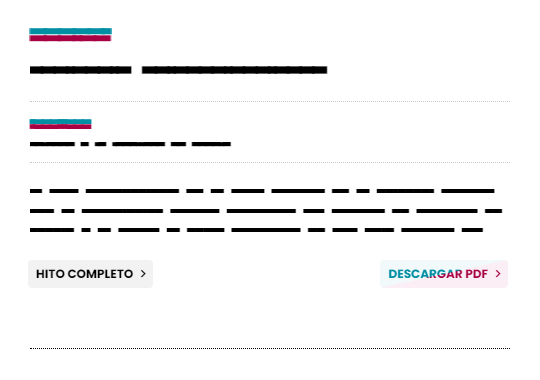
In each section, the available buttons provide access to the relevant paragraphs, as well as to the repository where the full text of the source document is available.

2030 Agenda for Sustainable Development (2015). United Nations General Assembly (A/RES/69/315).
ECLAC (2013) Montevideo Consensus on Population and Development. First meeting of the Regional Conference on Population and Development of Latin America and the Caribbean.
ECLAC (2015) Operational guide for implementation and follow-up of the Montevideo Consensus on Population and Development. Second Meeting of the Regional Conference on Population and Development in Latin America and the Caribbean.
Committee on Economic, Social and Cultural Rights (2016) General Comment No. 22, on the right to sexual and reproductive health (article 12 of the International Covenant on Economic, Social and Cultural Rights) (E/C.12/GC/22).
Committee on the Elimination of Discrimination against Women (2017) General recommendation number 35 (CEDAW/C/GC/35).
Beijing Declaration and Platform for Action (1995) Fourth World Conference on Women.
Programme of Action of the International Conference on Population and Development (1994). Cairo International Conference on Population and Development.
See A/RES/69/315. Sustainable Development Goals 5.6: Ensure universal access to sexual and reproductive health and reproductive rights as agreed in accordance with the Programme of Action of the International Conference on Population and Development and the Beijing Platform for Action and the outcome documents of their review conferences.